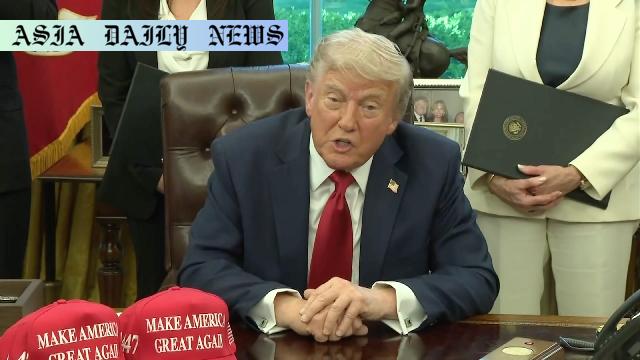Ukraine struggles with US peace plan criticized as biased.
- Trump claims Ukraine is harder to negotiate with compared to Russia.
- The US peace plan proposes recognition of Crimea under Russian control.
- Ukraine views the plan as biased and heavily favors Russia.

Introduction: Trump’s Comments on Ukraine Negotiations
US President Donald Trump has spotlighted the complexities of securing peace between Russia and Ukraine. In recent comments to the press, Trump openly shared that reaching an agreement with Ukrainian President Volodymyr Zelenskyy has proven more challenging than anticipated. He emphasized that while Russia appears ready to settle, getting a deal with Zelenskyy has significant obstacles. For many, these statements underline the contentious dynamics of peace negotiations enveloped in political, territorial, and international alliance issues.
The Peace Plan’s Controversial Elements
Central to the unfolding narrative is the peace proposal set forth by the Trump administration. A key provision includes “de jure” United States recognition of Crimea as Russian territory, a move that would mark a stark departure from longstanding US foreign policy. Equally contentious is the demand that Ukraine pledge not to seek NATO membership. These terms have drawn severe criticism, particularly from Ukrainian officials, who argue the framework disproportionately favors Russian interests while compromising Ukraine’s sovereignty and security.
Ukrainian Opposition to the Proposal
For Ukraine’s leadership, the peace proposal presents a complex dilemma. President Zelenskyy and his administration have already rejected the notion of recognizing Crimea as part of Russia. Doing so would not only undermine Ukraine’s territorial claims but also go against public sentiment among Ukrainians, who broadly oppose conceding to Russian annexation. Furthermore, renouncing NATO aspirations could leave Ukraine vulnerable amidst future geopolitical instability. Such concessions do not just conflict with Ukraine’s long-term goals but also risk creating internal political discord.
Implications of US Policy in the Region
The Trump administration’s position reflects a stark recalibration of US policy priorities. By leaning toward appeasing Russian interests, this approach suggests the administration’s primary focus could be expediting conflict resolution, even at the cost of compromising longstanding US-Ukraine partnerships. Critics suggest these decisions risk destabilizing Eastern Europe and emboldening Russia, while also weakening US credibility among its NATO allies.
The Significance of Crimea in Geopolitical Terms
The annexation of Crimea by Russia remains one of the most inflammatory geopolitical issues in recent history. Capturing Crimea enabled Russia to enhance its control over the Black Sea and establish a significant strategic advantage in the region. However, for Ukraine, the territory is a vital symbol of national unity and independence. Recognizing Crimea under Russian control would not only validate Moscow’s aggressive annexation but may incentivize similar actions elsewhere.
Challenges Ahead for Peace Negotiations
Negotiating peace between Russia and Ukraine is proving to be no easy feat. For the Trump administration, the goal of resolving this conflict includes navigating a mosaic of challenges, from security guarantees and territorial disputes to balancing international alliances. Yet, the optics of favoring Russia undercuts Ukraine’s trust in the negotiation process. If a resolution is to be achieved, it will require a more balanced approach that respects Ukraine’s sovereignty while addressing Russian security concerns.
Conclusion: The Path Forward for Ukraine and Its Allies
The current phase of US involvement in the Ukraine-Russia peace talks reflects both opportunities and challenges. While efforts to end hostilities are welcome, they should not come at the expense of Ukrainian interests. Instead, a collaborative approach that engages key stakeholders, respects international norms, and delivers sustainable solutions is necessary. For Ukraine, the ongoing negotiations will test its resolve and capacity to safeguard its territorial integrity and sovereignty in the face of significant international pressure.



Commentary
The Complexity of Ukraine-Russia Relations
The Ukraine-Russia conflict is not just a regional issue but a test case for international conflict resolution in deeply divided geopolitical landscapes. With the Trump administration now seeking to broker peace, the challenges involved highlight the many obstacles that come with addressing such a longstanding and consequential conflict. For President Trump to describe Ukraine as harder to negotiate with than Russia provides rare insight into how power dynamics influence these talks, underscoring the delicate balances that must be struck to foster constructive dialogue.
The Perils of a Biased Peace Proposal
One of the key controversies emerging from the peace negotiations is the perception that the US proposal disproportionately favors Russia. While expediting a resolution may be the priority, bypassing Ukraine’s core demands disregards their sovereignty. Such biases not only reduce trust but invite skepticism of US motives in the process. Ukraine’s rejection of concessions on NATO membership and Crimea’s status is rooted in legitimate concerns of self-determination—a principle worth defending in international affairs.
Strategies for a Balanced Approach
The road forward is laden with complexities, but lessons can be drawn from history. For negotiations to succeed, the process must be transparent and collaborative, with meaningful participation from all stakeholders. Peace achieved through unilateral concessions often proves fragile at best. For the Trump administration, crafting a fair and balanced framework is essential if the goal is lasting peace rather than a quick political win. Correspondingly, Ukraine must maintain its resolve to ensure its sovereignty is upheld in any agreement.
Conclusion: A Time for Thoughtful Leadership
The Ukraine peace talks will undoubtedly shape the region’s future and impact international dynamics for years to come. It is, therefore, imperative that the US, Ukraine, and Russia each exercise thoughtful leadership and commitment to broader principles of peace. Only through equitable agreements can a stable and prosperous future be realized for this war-torn region.